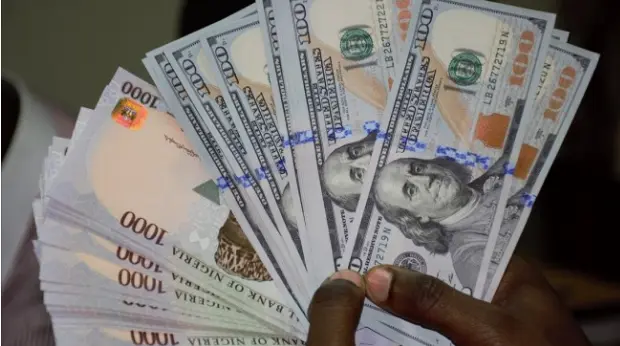Despite the value of the naira against dollar hitting N1,020 at the end of last month, there was an increased inflow of foreign exchange into the official market in September which saw the naira gaining strength at the Investors’ and Exporters’ window (I&E).
Total inflows into the I&E window rose to a three-month high last month, increasing by 49.1 per cent month on month to $1.31 billion, according to FMDQ report.
Last week, the value of the naira had closed stronger at N741.85 on Friday as against N747.60 which it began the week. It equally closed stronger on the streets as parallel market rates closed on Friday at N1,000 as against N1,005 which it sold on Monday.
Breakdown provided showed that the local inflows primarily drove the increase amid a decline in inflows from foreign sources. Accordingly, local inflows increased by 55.2 per cent month on month $1.26 billion as against $810.8 million that was recorded in August.
Local inflows had been supported by higher inflows from non-bank corporates which was up by 89.3per cent and exporters which was up by 49.7 per cent month on month. As foreign investors remained cautious about returning in despite the significant currency depreciation since June, foreign inflows remained underwhelming dropping by 20.5 per cent to $44.60 million last month.
Meanwhile at the FMDQ Securities Exchange (SE) FX Futures Contract Market, where the dollar gained across the mid to long end of the curve against the local currency. Forward rates appreciated in favour of the dollar by 0.22, 2.01, and 3.06 per cents accordingly while at the 1-month and 2-month forward contracts, the dollar skidded by 0.61, and 0.06 per cents week on week in that order to close at N786.31 and N796.83 to the greenback.
Analysts at Cordros Research said, they expect foreign exchange liquidity conditions to remain frail in the near term as FX reform momentum has slowed considerably. “We also anticipate weak foreign inflows in the short-term, as foreign investors will likely adopt a wait-and-see approach in the near term as they await the CBN’s actions in clearing its forex backlogs and the direction of short-term interest rates amid high inflation,” they noted.
At the money market, system liquidity was down as the Central Bank of Nigeria debited banks on Cash Reserve requirement (CRR). Yields in the secondary market trended lower for most maturities as the Nigeira Inter Bank Offer Rates (NIBOR) moved in mixed directions on reduced liquidity.
The reduction in the liquidity level was due to a system CRR debit which amounted to around N718 billion. Overnight NIBOR stayed tanked from the prior week by 1.67 percentage points, while the 1-month, 3-months and 6-months maturities cleared higher by 0.83 percentage points, 1.33 percentage points and 1.75 percentage points to 8.33 per cent, 10 per cent and 11.42 per cent respectively.
Notably, NITTY for 1 month, 6-months and 12 months maturities crashed to 3.16 per cent (from 3.38%), 7.03 per cent (from 7.13%), and 12.56 per cent (from 13.94%) respectively. This week, the Nigerian Treasury bills market is expected to remain active as the Central Bank of Nigeria plans to roll over maturing bills totaling N36.56 billion. These bills include 91-day bills worth N2.78 billion, 182-day bills worth N3.02 billion, and 364-day bills worth N30.76 billion.
In addition, N10 billion in Open Market Operation (OMO) maturities are expected in the coming week, which should help maintain system liquidity.
However, analysts said they anticipate that stop rates for these issuances may rise due to tightening liquidity conditions and expectations for the Central Bank to narrow the interest rate corridor, causing interest rates to increase across the board. Additionally, the DMO is scheduled to hold an primary market auction Wednesday, where it will be rolling over maturities worth N36.56 billion.





